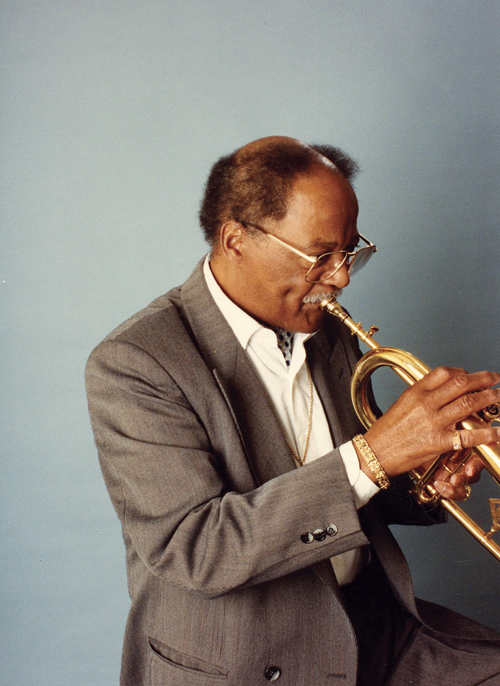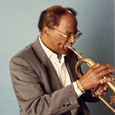
Legendary trumpeter, composer, and teacher Clark Terry died on February 21 at the age of 94. His remarkable career included stints with the bands of Count Basie, Duke Ellington, The Tonight Show, and Oscar Peterson, along with appearances on more than 900 recordings. In his April 1991 interview with Doug Beach for The Instrumentalist, Terry spoke about his early years and his nearly decade-long stint with the Ellington band.
The Navy Years
I entered the Navy in World War II, and I immediately became involved with musicians who had been in the big bands: Willie Smith, Joe Wilson, and Big George Matthews from the Basie Band. We had a pool of musicians at Great Lakes, and whenever the Naval Base needed a musical group, we’d put together a band from the pool. We had sessions all day long every day. That’s where I learned all the tunes in all the keys, and aside from that, I had time to practice. Being in the Navy with all those players made me want a career in music.
The Ellington Years (1951-59)
I refer to my years with Duke as that period when I attended the University of Ellingtonia. Duke had so much to offer because he was so beautifully endowed with magnificent ideas in theory, harmony, and counterpoint. Playing his music was a great education, and so was hearing the way he voiced things and how he used the players in his orchestra. He used them as individual voices and would write parts especially for them. There were no 1st, 2nd, or 3rd trumpet parts; each one had a guy’s name on it. Duke knew the areas in which certain people were interesting. Rex Stewart had a way of depressing his valves and playing a concert D. He’d get the note and a guttural sound to go along with it. Whenever that note would come up in a chord, Rex would have it.
Ellington knew how to use players to the greatest of their abilities. In fact, he was such a great psychologist that he’d get things out of you that you didn’t think you were capable of. We recorded an album called Drum Is a Woman that was all about Mardi Gras. Duke said to me, “I want you to portray Buddy Bolden, New Orleans’ first great jazz trumpet player.”
“Maestro, I don’t know anything about Buddy Bolden,” I said. “You don’t even know that much about Buddy Bolden.”
“Oh sure I do,” he said. “He was dapper and suave and he always liked to have himself surrounded with gorgeous ladies, and he had such a big fat sound that when he tuned up he could break glasses across the river. He could bend notes like you never heard before in your life. Bend me some notes,” he said. Duke’s portrait was so convincing that I thought I was Buddy Bolden, and that was exactly what Duke wanted. He could put Harry Carney on the top of a solo and put Ben Webster or Jimmy Hamilton on the bottom and come up with a unique sound. That’s one of the reasons why bands playing the same charts as Ellington cannot sound like the Ellington band; they don’t have those personalities.





